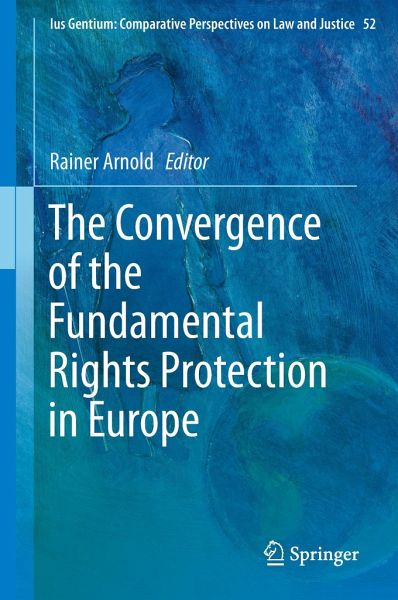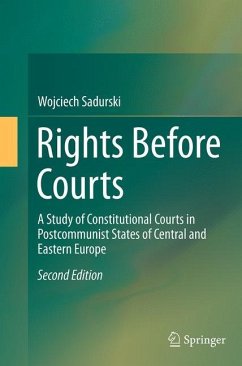
The Convergence of the Fundamental Rights Protection in Europe

PAYBACK Punkte
38 °P sammeln!
The book gives insightinto the structures and developments of the fundamental rights protection inEurope which is effective at the levels of the national Constitutions, theEuropean Convention of Human Rights and, for the EU member States of the EUFundamental Rights Charter. The contributions of renowned academics fromvarious European countries demonstrate the functional interconnection of theseprotection systems which result in an increasing convergence. Basic questionsare reflected, such as human dignity as foundation of fundamental rights orpositive action as a specific form of equality as w...
The book gives insightinto the structures and developments of the fundamental rights protection inEurope which is effective at the levels of the national Constitutions, theEuropean Convention of Human Rights and, for the EU member States of the EUFundamental Rights Charter. The contributions of renowned academics fromvarious European countries demonstrate the functional interconnection of theseprotection systems which result in an increasing convergence. Basic questionsare reflected, such as human dignity as foundation of fundamental rights orpositive action as a specific form of equality as well as the concept of rightsconvergence. In this latter contribution the forms of direct reception of adifferent legal order and of the functional transfer of principles and conceptsare analyzed. Particular reference is made to the EU Charter, the UnitedKingdom Human Rights Act as well as to France and Germany. It becomes obvioushow important interpretation is for the harmonization ofnational andconventional fundamental rights protection. Traditional institutionalapproaches like the dualist transformation concept in Germany are functionallyset aside in the harmonization process through constitutional interpretation. Specificstudies are dedicated to the field of the EU Fundamental Rights Charter and to theEuropean impacts on the national fundamental rights protection in selectedcountries such as the "new democracies" Poland, Romania and Kosovo as well as more traditional systems such as Spain, Italy, the Nordic countries or Turkey.












